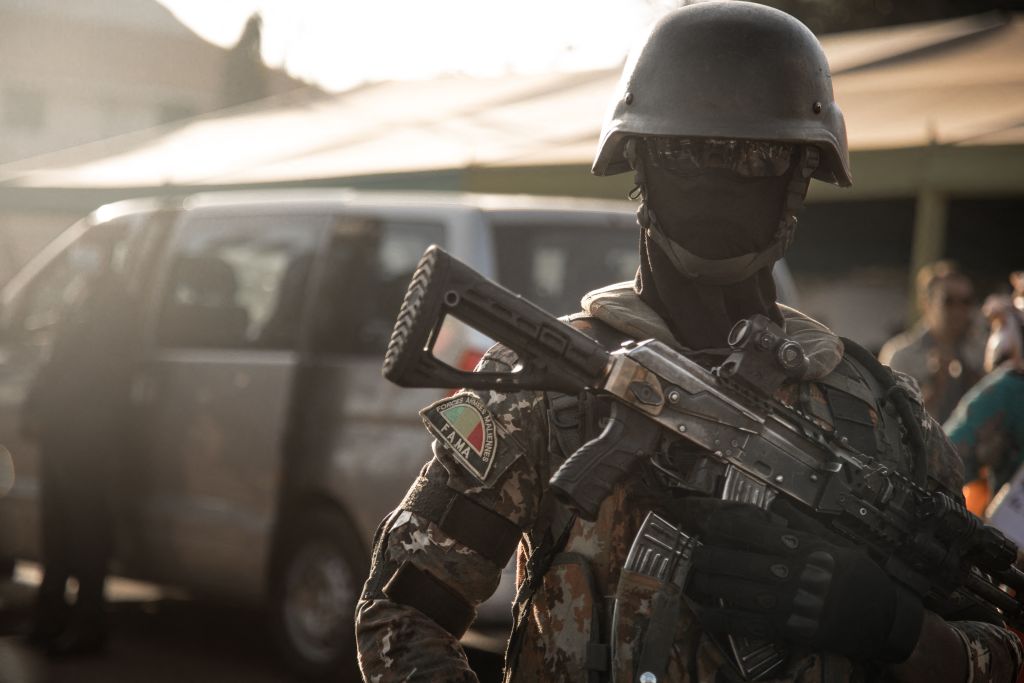The Jama’at Nusrat al-Islam wal-Muslimin terror group has increased attacks on Malian urban centers, cities and military outposts in its efforts to further destabilize the country and impose a strict form of Islamic law. Civilians frequently are caught in the crosshairs of the group’s terror campaign, which threatens the entire Sahel region.
In late August, the terror group, also known as JNIM, gained control of a military base in the town of Farabougou, near the Wagadou Forest in the south-central Ségou region. The forest on the Mauritanian border is a known JNIM base. About a week later, JNIM captured Farabougou. An al-Qaida affiliate, JNIM celebrated the capture of Farabougou with messages published on its propaganda platform al-Zallaqa.
“The head of the village has signed with the jihadists to say we shall respect their laws, so they have said we can return,” one Farabougou resident told Agence France-Presse (AFP). Residents returned under strict conditions, including a strict dress code for women, payment of taxes, and bans on secular music and alcohol. A local official lamented their plight.
“Some have nowhere else to go,” the official told AFP.
On September 3, JNIM announced it had established a blockade in the regions of Kayes and Nioro in western Mali, areas that border Senegal and Mauritania. The terrorists have disrupted fuel importation from Senegal by killing drivers, burning tanker trucks and threatening trucking companies. The border region to Senegal is a major gateway for trade and imports from Dakar that has been relatively stable for years.
“We usually bring in fuel from Senegal, but have preferred to stop our operations for now,” a manager at a Malian transport company told The Africa Report. “The jihadists have already burned buses, and we do not want to suffer losses.”
Days later, JNIM attacked trucks coming from Côte d’Ivoire in Mali’s southern Sikasso region. An official with a Malian truckers’ union said some transportation companies suspended their operations on the route between Bamako, and Dakar, Senegal’s capital. The official, who spoke anonymously, told marinelink.com that terrorists had blocked the road connecting Bamako with the southern town of Segou.
On September 5, terrorists kidnapped six truck drivers from Senegal in Mali, but freed them the next day. Djenabou Cisse, a research fellow with the Foundation for Strategic Research, said JNIM is increasing pressure on these areas to weaken the military junta led by Gen. Assimi Goïta and threaten Bamako, the national capital.
Security analyst Zagazola Makama said the Malian Army is suffering from internal divisions that are harming its effectiveness after arrests of top commanders who are suspected of disloyalty.
“This climate of suspicion has eroded morale within the ranks and left units vulnerable to external attacks,” Makama wrote. “Sources describe the approach as ‘self-inflicted damage,’ as the army, already stretched thin on multiple fronts, now contends with both battlefield losses and internal mistrust.”
A Malian security analyst in Bamako said JNIM’s ability to quickly implement the blockade demonstrates its growing capacity. The analyst told Reuters the group’s objective is to “push the civilian population out into the streets to show their dissatisfaction with the transitional authority and weaken or discredit the transitional authority.”
In response to the blockades, the Malian Army conducted counterterror operations, including airstrikes, in Kayes. A Malian colonel stationed in Nioro said troops also freed hostages held by militants, marinelink.com reported.
The blockade announcement was preceded by coordinated, simultaneous early-morning JNIM assaults on Malian urban centers and towns, including assaults on Malian military posts, on July 1. JNIM said that it gained control of three barracks during the attacks. Mali’s Army said it killed 80 terrorists, while JNIM said it killed dozens of Soldiers and destroyed more than 100 military vehicles and motorcycles. One military post was in Diboli, a town near the Senegalese border, that largely has been spared from terrorist attacks.
Goïta pledged to defeat terror groups when he seized power in 2021. According to the 2025 Global Terrorism Index, Mali ranked fourth among the countries most affected by terrorism last year, when it recorded 604 deaths from 201 terror attacks. JNIM was the main perpetrator of these attacks.
Russian mercenaries, first known as the Wagner group and now called Africa Corps, support Mali’s military. Wagner was active in Mali between January 2022 and June 2025. While the groups are technically different, their tactics are similar — and Wagner’s tenure in Mali was plagued by security failures. As noted in a recent report by the investigative research organization The Sentry, Wagner was unable to secure northern and central Mali, despite the junta’s high expectations. Wagner’s arrival coincided with increased attacks on civilians, which created opportunities for terror groups to increase recruitment. Wagner fighters also “sowed fear and chaos within the military hierarchy,” the report said.
“Wagner treated Malian soldiers as subordinates, perpetrated grave abuses and instilled such fear that even Malian troops were afraid to speak out,” Justyna Gudzowska, executive director of the Sentry, told Radio France International.
Goïta’s promised return to democracy has not happened. In early July, Mali’s transitional Parliament granted him a five-year presidential term, which is renewable without elections.

